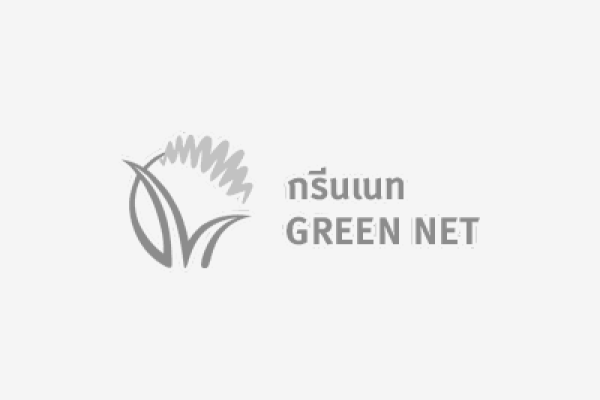
There are many good reasons to start producing organic seeds: One is the preservation and keeping of traditional seeds that contribute to the collection of different seed varieties and a great diversity on the fields. Moreover, seeds without chemical treatment are made available. In Thailand, most of the seeds sold by seed companies are chemically treated. And finally, the supply of seeds by seed companies has created a high degree of dependency for farmers, a relationship that is getting the more unfavorable the higher prices are.
The GreenNet seed project was started by Earthnet Foundation in 2008 with some initial learning activities and a focus on networking with other Thai organizations, interested in supporting organic seed production. At the beginning of the project, a small amount of organic seeds were already on the market but there was a general lack of good information around the seeds and also no minimum germination rates. The GreenNet seed project was the first attempt to commercialize organic seeds.
One location of seed production is the GreenNet Organic Center Chiang Mai. The center was founded in 2011 and has set the following objectives:
- To conserve local seed varieties
- To produce high-quality organic seeds
- To improve farmers’ income
- To share knowledge and experience with other seed producers and (international) guests
(Mattana Aphaimool)
The seeds produced at Green Net Organic Center Chiang Mai are vegetable and fruit seeds for farmers as well as for home gardeners especially in urban areas. Mathana Aphaimoon, staff and farmer at Green Net Organic Center Chiang Mai produces 18 different seeds at the moment. Besides, she is also testing the production of two other varieties. Her family has been doing organic farming for already more than 20 years. Mathana Aphaimoon is a very active and open-minded person. This year, she is hosting a volunteer from an international exchange program, sharing her knowledge on organic farming and seed production with him. Besides, Mathana Aphaimoon tries to test many unconventional and new methods. For example, she gets the electricity for her house from a nearby milking cow farm that runs a biogas plant with cow manure.
Mathana Aphaimoon explains that growing and preparing organic seeds is a manifold business. In general, it takes longer to produce organic seeds then conventional seeds. 75% of the planted vegetables can actually be used for seed production; the rest is not growing fast enough. However, a high number of seeds can be received from one single fruit, e.g. it is possible to get 100 cucumber seeds out of one cucumber fruit. After the extraction of seeds only few fruits and vegetables can still be used as food. E. g. tomato and pumpkin pulp can still be eaten while most remains of other fruits or vegetables may be used for compost.
Another big issue of the organic seed production is the possibility to also use the seeds for 2nd generation plants. These seeds are called open pollination seeds. While most commercial seeds are hybrids and can only be used for one generation, the open pollination seeds enable farmers and gardeners to harvest their own seeds. Producing open pollination seeds is first priority for the GreenNet project.
Certainly, the organic seeds are a valuable enrichment for farmers and gardeners in Thailand. Nonetheless, the question remains whether the original goals of the project have been met. Especially the intention to conserve a broad range of rare and local seed varieties is unlikely to be successful when production is taking place on a commercial scale. High quantities and a consistent quality of seeds are preconditions to make commercialization profitable. This usually requires the concentration on fewer varieties. Therefore, the project may not contribute to the conservation of different seed varieties as much as it was originally intended. But the project can serve as an example for farmers to raise their own seeds. If farmers produce their own seeds and exchange them with other farmers from the region, a great genetic diversity of agricultural crops can be achieved. GreenNet has set an initial step into the direction of organic seed production in Thailand. However, the local communities and farmers have to get active on their own to actually reach the goals of seed diversity and independency of farmers.
The overall range of seeds sold by GreenNet can be found online: http://www.greennet.or.th/en/article/producers/organic-seed
By Sandra Baumgardt August 2013


